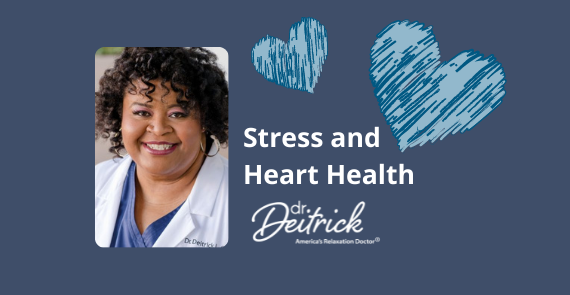
Did you know that heart disease is the number 1 killer for American Adults! Did you know that chronic unmanaged stress can hurt your heart?
We all face stressful events throughout our lives. Some individuals can successfully navigate stress and it doesn’t have a long-lasting impact. However, many people have a tough time managing stressful situations that pop up and they suffer from prolonged, unmanaged stress.
It’s important to understand what sustained stress can do to the body, for example, heart health.
When the body is facing stress, an adrenaline rush can occur which causes:
-An increased heart rate as the body enters a ‘fight or flight’ response
-An increased breathing rate
-A rise in blood pressure
If our bodies go into this stressful state on a frequent basis, it can negatively impact our heart health. According to the American Heart Association, more research needs to be done on this subject but they have found that individuals who face ongoing stress are more susceptible to poor health habits that have a significant impact on our heart.
Examples include:
-Increased consumption of alcohol
-Binge eating
-Poor sleeping patterns
-Chronic fatigue
-Inability to calm the mind and focus
-More susceptible to taking illegal drugs
-Lower immunity
These behaviors can dramatically affect one’s overall health including their cardiovascular system. Unmanaged stress has multiple effects on our body’s overall health and ability to feel our best. Not to mention the emotional and mental impacts.
It is of the utmost importance to find productive ways to manage your stress before something happens.
As a board certified family medicine physician I encourage everyone to pay attention to how you are reacting to the stress in your life. If you enjoy videos, my YouTube channel has dozens of short, informational videos covering stress, stress management strategies among other useful topics. Visit my channel youtube.com/drdetirckg and you can also check out my books here.
Relax Well,
Dr. Deitrick